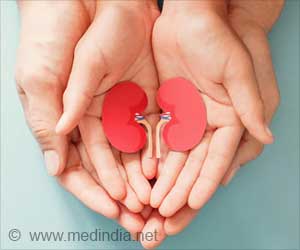For this Valentine’s Day (February 14th), take extra efforts to boost your partner’s heart health. Simple lifestyle changes can go a long way in keeping your loved one’s heart strong and healthy. So, let him eat right, move more, sleep well, and live happily.
- Valentine’s day (February 14th) could be the loveliest day to express your love and care towards your partner’s heart
- Partners can make an unerasable impression on each //other’s heart health
- Following simple heart-healthy lifestyle habits can keep your loved one’s heart strong and healthy in the long-run
Read More..
Details of the Study
The survey was conducted as part of Cleveland Clinic Heart, Vascular and Thoracic Institute’s “Love your Heart” consumer education campaign in celebration of American Heart Month. It looked at how relationships affect heart health.
Findings of the Study
The survey found most Americans in committed relationships are looking to their partners for motivation. An overwhelming majority (83%) agreed that if their partner adopted a heart-healthy diet, they would join in, and 57% said they are more likely to exercise with their partner than by themselves.
“I recommend partners undertake heart healthy habits together. Make it fun but hold each other accountable – find new healthy recipes and cook them together, join an exercise class, or go on daily walks with your partner. Simple lifestyle changes can go a long way in keeping your heart strong and healthy.”
Additional survey findings include:
The majority of Americans (86%) believe that emotional heartbreak can result in physical pain, and seven-in-ten (71%) also believe it’s possible to die of a broken heart. Physicians say there is a “broken heart syndrome”, called Takotsubo cardiomyopathy, which is a response to sudden emotional stress, but it is rare.
Seven-in-ten (70%) Americans consider sex exercise, especially younger Americans under 55.
Men in a committed relationship especially said that their partners were a positive influence on their heart health- 78% compared to 67% of women.
Heart disease is the leading cause of death in the United States, accounting for 1 in every 4 deaths. Cleveland Clinic has been ranked the No. 1 hospital in the country for cardiology and cardiac surgery for 25 years in a row by US News & World Report.
Methodology
Cleveland Clinic’s survey of the general population gathered insights into Americans’ perceptions of heart health and prevention. This was an online survey conducted among a national probability sample consisting of 1,000 adults 18 years of age and older, living in the continental United States. The total sample data is nationally representative based on age, gender, ethnicity and educational attainment census data. The online survey was conducted by Dynata and completed between September 23 and September 26, 2018. The margin of error for the total sample at the 95% confidence level is +/- 3.1 percentage points.
Reference:
- For Valentine’s Day, Think of Your – and Your Partner’s – Heart Health - (https://newsroom.clevelandclinic.org/2020/02/10/for-valentines-day-think-of-your-and-your-partners-heart-health/)
Source-Newswise
















